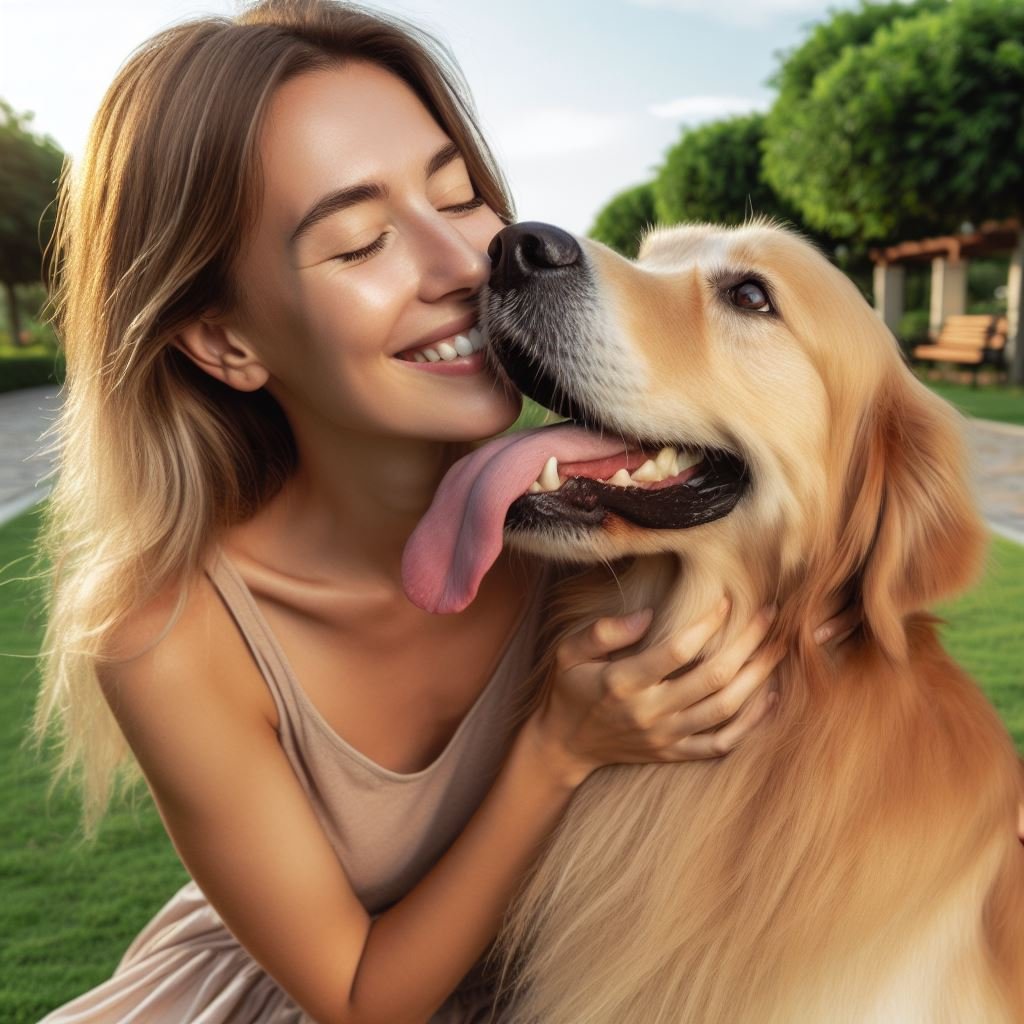Do animals wonder why we don’t lick them back?
Have you ever noticed your furry friend giving you a wet, slobbery lick and wondered, "Do animals think it's odd that we don't lick them back?" This intriguing question delves into the fascinating world of animal behavior and communication. Understanding the way animals express affection and their perception of human responses can deepen our bond with our beloved pets.
Understanding Animal Affection: More Than Just Licks
Animals show affection in various ways, with licking being a common gesture among many species, especially dogs. Licking, in the animal kingdom, can signify different things: a sign of affection, a means of communication, or even a grooming habit. However, it's important to consider that not all licks are created equal.
The Science Behind Licking
In dogs, licking can be a sign of respect and submission. Puppies lick their mother's mouth as a way of asking for food or showing respect. As dogs grow, this behavior can translate into licking their human companions as a sign of affection and respect. In the wild, similar behaviors can be observed in other animals, like wolves, who lick the alpha wolf in a pack as a sign of submission and acknowledgment of their leadership.
Human Responses to Animal Affection
Humans, on the other hand, express affection differently. Our primary methods of showing love include verbal communication, hugs, and gentle touches. While animals might not understand these gestures in the same way we do, they can learn to associate them with positive feelings and affection.
Do Animals Get Confused by Human Behavior?
It's a stretch to assume that animals spend time pondering why humans don't reciprocate their licking. Animals don't process thoughts and emotions in the same complex way humans do. However, they are excellent at picking up cues from their environment and adapting to them. If a dog licks its owner and receives a pat on the head or a cheerful voice in return, it will likely understand this as a positive response.
Cross-Species Communication: A Two-Way Street
Effective communication with animals involves understanding their behavior and responding in ways that they can comprehend. While we might not lick our pets back, we can show affection in ways they understand, like petting, playing, or offering treats.
Learning Each Other's Love Languages
Just as humans have different love languages, animals too express and perceive affection in various ways. For instance, cats might show affection by purring or rubbing against you, while dogs might wag their tail or bring you their favorite toy. Recognizing these signs and responding to them can help in building a stronger bond with your pet.
The Role of Domestication in Animal-Human Relationships
Domestication has played a significant role in shaping the way animals interact with humans. Through centuries of living alongside humans, many domesticated animals have developed a unique understanding of human behavior. They might not expect a lick in return, but they do look for signs of affection and approval in our actions.
Enhancing Our Bond with Pets
Understanding and respecting the natural behaviors of our pets can enhance the bond we share with them. Engaging in activities they enjoy, responding to their affectionate gestures, and being mindful of their needs can help in creating a harmonious relationship.
Tips for Strengthening Your Relationship with Your Pet
1. Observe and Respond: Pay attention to your pet’s unique ways of showing affection and find ways to respond that align with their behavior.
2. Quality Time: Spend quality time with your pet, engaging in activities they enjoy.
3. Training and Positive Reinforcement: Use training as a way to communicate and bond with your pet. Positive reinforcement can strengthen the bond between you and your animal companion.
4. Routine and Stability: Animals thrive on routine and stability. Providing this can make them feel secure and loved.
Embracing the Unspoken Bond
In conclusion, while our pets may not ponder why we don't lick them back, understanding and respecting the ways they express affection can lead to a deeper and more meaningful relationship. Our response to their love, though different in form, can be equally powerful in building a strong, lasting bond.
So, the next time your furry friend gives you a lick, remember it's their way of showing love and consider responding in a way they understand – a gentle pat, a kind word, or their favorite treat. In doing so, we celebrate the unique and loving relationships we share with our animal companions.
Tail Wags and Purrs: Celebrating Our Unique Bonds with Pets - While we may not be able to lick our pets back, understanding and responding to their gestures of affection is key to nurturing a strong, loving relationship. Embrace these special moments and cherish the unspoken bond you share with your furry friend.












